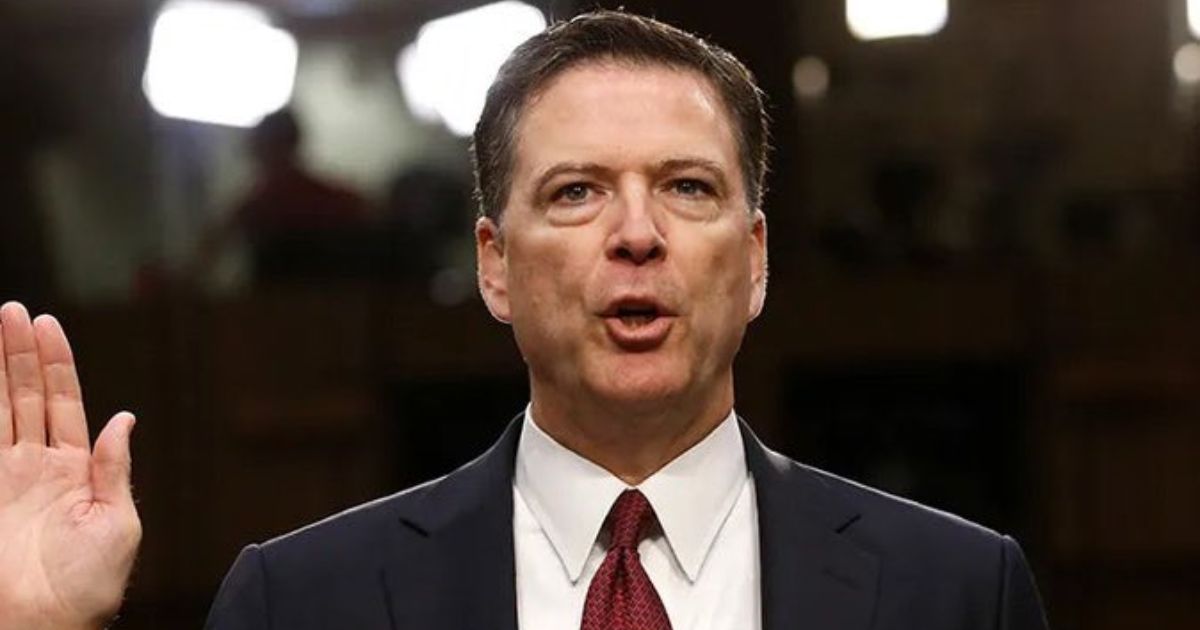Former FBI Director James Comey has turned the tables on the Justice Department with a scathing 93-page court filing that accuses the Trump administration of weaponizing the law to punish him for political reasons. Legal experts say the new filing not only exposes a potentially fatal flaw in the government’s case, but could blow open how the DOJ under former President Donald Trump handled prosecutions against his critics.
Comey, indicted for allegedly lying to Congress in the Eastern District of Virginia, now claims the charges were built on a misquote, a statement he insists he never made. The filing argues that his indictment amounts to “selective or vindictive prosecution,” a constitutional violation that suggests he was targeted for his opposition to Trump.
In his motion, Comey highlights how the indictment “misstates the exchange between Sen. [Ted] Cruz (R-TX) and Mr. Comey,” as pointed out by national security expert Marcy Wheeler. “Senator Cruz asked Mr. Comey to affirm or deny prior testimony that he authorized ‘someone else at the FBI to be an anonymous source in news reports about… the Clinton Administration,’” the filing says. “But Hillary Clinton was not elected, and Senator Grassley’s original questioning in 2017 related to the ‘Clinton investigation.’”
That distinction, legal analysts say, isn’t minor, it could undermine the foundation of the entire case. Wheeler noted that Comey’s legal team also unearthed a key document the DOJ allegedly tried to hide: an “appointment order” naming U.S. Attorney Lindsey Halligan to the case.
“The government has followed unusual discretionary procedures in deciding to prosecute,” Comey’s filing states, per Raw Story. “Those aberrant procedures provide strong evidence that the prosecution was brought for an improper reason.” It specifically cites Trump’s eleventh-hour appointment of Halligan, a political ally, to prosecute his longtime critic, a move that came with an accompanying social media post pushing the DOJ to indict.
Lawyer P. Andrew Torrez, co-host of the “Law and Chaos” podcast, said the appointment order is “the document the government has been trying to hide for weeks.” According to Torrez, the order may reveal that Halligan’s appointment under 28 U.S.C. 546 — which allows “interim” U.S. Attorneys to serve for only 120 days — has long since expired.
“Once those 120 days are up, the interim lawyer is out and only the judges in the district can appoint someone to stay on the job,” he explained. “If Halligan wasn’t validly appointed, then everything she’s done has been ultra vires and void ab initio. That means the stuff she’s done gets unwound.”
He likened the issue to a case involving Trump’s lawyer Alina Habba in New Jersey, who is awaiting a ruling from the Third Circuit Court of Appeals on a similar appointment problem.
The Atlantic’s legal columnist Quinta Jurecic called the appointment issue “a potentially serious problem for the government.” National security lawyer Bradley P. Moss was even more blunt: “Is Bondi that dumb? Did no one explain this to her when she signed the memo? The First Assistant was supposed to take over. Not Halligan.”
Politico’s Josh Gerstein added that footnote seven in the indictment clarifies “Person 1 refers to Hillary Clinton and Person 3 refers to Daniel Richman,” giving new context to what Comey’s team calls “misleading insinuations” in the government’s case.









